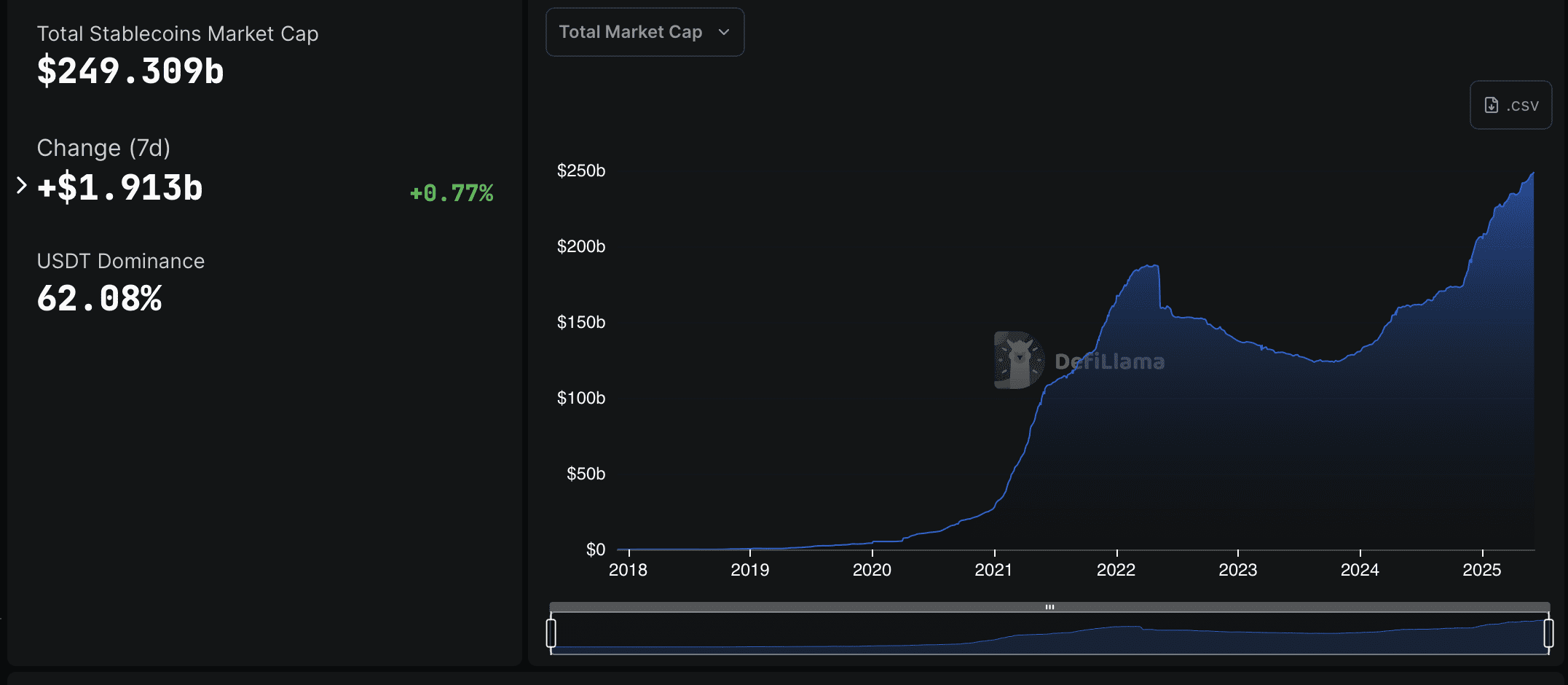Growing momentum for United States stablecoin regulation is reportedly pushing major tech firms like Apple, X, and Airbnb to explore digital token integration.
According to reports, at least four tech companies, including Apple, X, Airbnb and Google, are exploring stablecoins as a means to lower fees and improve cross-border payments. Each company is in a different stage of implementation, with Google perhaps the farthest ahead, having facilitated stablecoin payments already.
Payment infrastructure companies are playing a role. For instance, Airbnb has been talking with Worldpay about using stablecoins, seeking to cut fees from credit card payment processors like Visa and Mastercard.
Social platform X has been talking with crypto companies about integrating stablecoins into its X Money app. Elon Musk has previously stated that he wants to broaden X’s reach to allow users to send and receive money. The company has already pursued money transmitter licenses across the US.
A spokesperson for Google Cloud stated that the company is “focused on responding to customer demand for efficient, 24/7 payments” and is “evaluating stablecoins that allow us to provide that in a safe and sound manner.” The tech giant is also helping its customers to explore stablecoins by offering its ledger technology.
Stablecoins have become one of crypto’s most popular use cases. The market capitalization for such assets has risen significantly since January.

Partnerships between stablecoin infrastructure and tech companies have been on the rise as well. Among the partnerships are Mastercard’s alliance with MoonPay and Visa’s deal with Bridge. In October 2024, Stripe announced its acquisition of Bridge, which some labeled the “starting gun” for people in Silicon Valley to take stablecoin technology seriously.
Paxos, a crypto company known for stablecoins, has partnered with both Stripe and PayPal to provide services. For Stripe, Paxos planned to launch a new stablecoin payments platform. Paxos is also the company supporting PayPal’s PYUSD stablecoin, which has a significant market capitalization.
GENIUS Act sparks debate in US Senate
The “Guiding and Establishing National Innovation for U.S. Stablecoins Act,” otherwise known as the GENIUS Act, is one of the developments pushing companies to explore digital assets.
The bill seeks to provide a regulatory framework for stablecoins and their issuers in the country but has been met with debate about Big Tech’s potential participation in the crypto industry.
According to reports, a Republican Senator recently said he would vote against the bill in its current form as it would allow tech companies the ability to issue digital currencies that would compete with the dollar.
Democrats plan to add an amendment that would ban Big Tech companies from creating their own stablecoins. The move would force tech companies operating in the US to use established stablecoin companies, including Tether and Circle.
Quick Summary of the News
- Major tech firms, including Apple, X, Airbnb, and Google, are exploring stablecoin integration.
- The GENIUS Act, aiming to regulate stablecoins in the US, is facing debate in the Senate.
- Some Senators worry about Big Tech’s potential to issue stablecoins that could compete with the US dollar.
- Amendments are proposed to potentially ban Big Tech from creating their own stablecoins, favoring established crypto companies.
- Stablecoin market capitalization has seen significant growth.
Why It Matters
The potential entry of Big Tech into the stablecoin market could be a watershed moment for cryptocurrency adoption. These companies have massive user bases and established payment infrastructures. Their involvement could legitimize stablecoins for everyday transactions, drastically increasing their use cases and overall market size.
However, the regulatory landscape remains uncertain. The GENIUS Act aims to provide clarity but faces significant opposition. The debate centers around whether to allow tech giants to create their own stablecoins or to force them to rely on existing crypto companies. This decision will have a profound impact on the competitive landscape and the future of stablecoin innovation.
Market Impact
The market impact of Big Tech’s potential entry into the stablecoin space is substantial. The stablecoin market cap has already seen impressive growth, and further adoption by tech giants could accelerate this trend.
Expert Take or Personal Insight
The interest from Big Tech in stablecoins is a clear sign that they recognize the potential of this technology to revolutionize payments. The debate surrounding the GENIUS Act highlights the tension between fostering innovation and protecting the existing financial system. I believe a balanced approach is needed, allowing for innovation while ensuring proper regulation and consumer protection. Preventing Big Tech from building their own stablecoins may stifle innovation, as these companies possess the resources and user base to drive adoption.
Actionable Insight
Traders and investors should closely monitor the progress of the GENIUS Act and the stance taken by different senators. The outcome of this legislation will significantly impact the stablecoin market. Additionally, keep an eye on partnerships between Big Tech and existing crypto companies, as these collaborations could provide early insights into the future of stablecoin adoption.
Conclusion
The potential adoption of stablecoins by Big Tech represents a significant opportunity for the crypto industry. While regulatory hurdles remain, the increasing interest from major players suggests a future where stablecoins play a more prominent role in the global financial system. The coming months will be crucial in determining the shape of this future, as policymakers grapple with the challenges and opportunities presented by this emerging technology.